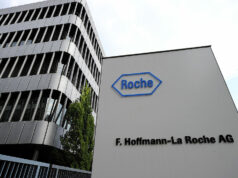
A last-minute change to the schedule at the J.P. Morgan Healthcare Conference reflects the weight of the Jan. 2 merger between Bristol-Myers Squibb and Celgene: Originally scheduled to give their presentations separately, they were rescheduled to present together.
Given that the $74 billion deal was the first major biopharma transaction of the year, following the volatility of the fourth quarter of 2018, investors at JPM had a lot to say about it.
The cash and stock deal brought together two of the world’s largest cancer-focused drugmakers: Summit, New Jersey-based Celgene, whose flagship product is the blood cancer drug Revlimid (lenalidomide), and New York-based BMS, best known for making the PD-1 checkpoint inhibitor Opdivo (nivolumab). In a conference call with analysts to discuss the deal, it also faced some tough questions. That’s because Revlimid and Opdivo both will lose patent protection in the latter half of the next decade, and the combined $15 billion value of the six drugs the two companies hope to launch in the near term would still miss the peak sales for Opdivo that some analysts have forecast.
But investors at JPM also weighed in on the deal and what it could mean for the biopharma market this year. They spoke on condition of anonymity as they were not authorized to speak to news media.
One New York-based analyst compared the transaction to Takeda Pharmaceutical Co.’s $62 billion acquisition of Shire, a deal in which she was involved. BMS’s acquisition of Celgene was optimistic, she said, because like Shire, its stock had fallen significantly, in this due to impending generic competition for Revlimid. She said Celgene and Shire both were value traps, but while there are other biotech value traps out there, it is not easy to single out which ones will become acquisition targets. Still, she said, it’s uncertain if there will be other deals of similar size. At any rate, she said the patent expiration for Revlimid was likely priced into the deal.
The next major biopharma acquisition occurred Monday, when Eli Lilly & Co. purchased Loxo Oncology for $8 billion. While that deal was much smaller, Lilly CEO David Ricks said in a breakout session following his company’s JPM presentation that 2019 was “ripe” for an uptick in mergers and acquisitions.
But an Ohio-based investor said other deals – including perhaps one or two major ones – could be in the wings as well. In the last three or four months, drugmakers have been sitting on large piles of capital, and with BMS’s move, all of a sudden a big window has opened up, he said, agreeing with the analyst that the deal was likely opportunistic. The acquisition could be a harbinger of future consolidation as drugmakers face pricing pressure, especially as their pipelines are drying up, his colleague said. Much as Ricks suggested in the breakout, the investors said bolstering pipelines is likely to be one of the main motivations for acquisitions in 2019.
At the same time, biotech companies are in a much stronger position when large pharma acquirers come to buy them in order to bolster their own pipelines, a London-based investor said. Low interest rates have made it easier for them to get funding, and thanks to their being less dependent on large drug companies than in the past, they can seek out more favorable terms.
Some analysts have nevertheless expressed skepticism about the acquisition. In a note issued on Jan. 3, Bloomberg Intelligence analysts Sam Fazeli and Aude Gerspacher wrote that in buying Celgene, BMS had gone for near-term earnings and cash flow boost rather than longer-term upside. While solving Opdivo’s concentration risk, it also compounded BMS’s risk profile thanks to Revlimid’s patent expiration – and potentially earlier generic competition for the drug, along with patent expiry for the cardiovascular drug Eliquis (apixaban) and competition for Opdivo from other checkpoint inhibitors. “If Bristol is prepared to pressure its credit rating into the low BBB category, it could access another $30 billion, but this might be too much for the market to swallow,” they wrote. “As such, Bristol has used most, if not all, of its dry powder in this deal.”
Another company that could experience fallout is China-based BeiGene. Fazeli and another Bloomberg analyst, Cinney Zhang, wrote that the purchase of Celgene creates a problem for BeiGene’s PD-1 inhibitor, tislelizumab, because BMS’s focus on Opdivo could lead it to terminate the partnership between the Chinese company and Celgene. That would thus weaken BeiGene’s ability to compete against established checkpoint inhibitors in markets outside of China, for which the two companies had partnered on the drug.
Photo: alexsl, Getty Images








